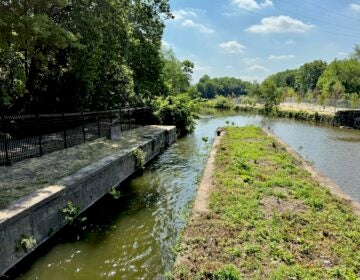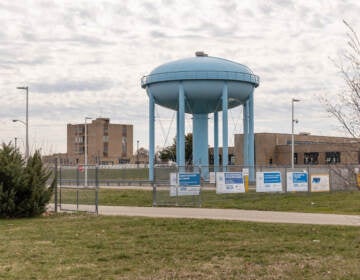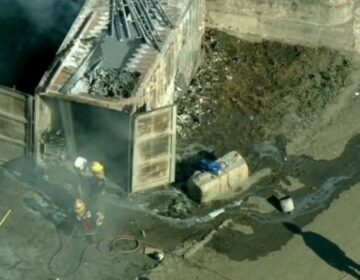On tap for Philadelphia: higher water bills and unhappy home, biz owners
The Philadelphia Water Department is proposing to raise the city’s water rate by 11 percent over the next three years.

The Philadelphia Water Department has proposed an 11 percent rate hike. (Kelpfish/Bigstock)
On Tuesday evening, some 30 people gathered in a church basement to hear the Philadelphia Water Department explain why they could soon be paying more to keep their faucets flowing.
Speaking to a crowd of residents and concerned advocates at the White Rock Baptist Church in West Philadelphia, PWD general manager Joanne Dahme described the agency’s proposal to increase the city’s water rate by 11 percent over the next three years. The rate change would hike the average water bill by between $87 and $95 a year, amounting to a little less than $8 per month. The new revenue would generate about $116 million earmarked for improvements to the city’s aging water infrastructure.
“This is an old system,” said Dahme. “We had about 600 water main breaks between December and March this year.”
The proposal earmarks $12 million to repair or replace broken pipes and another $10 million for the city’s stormwater management program, an important part of efforts to comply with federal clean water regulations and improve water quality. It also provides $8 million to cover the Philadelphia Fire Department’s water bill, a cost historically paid through general tax revenue.
Tuesday’s meeting was the second of seven public input hearings held on the proposed increase.
Under city law, the proposed rate hike must be independently reviewed by an independent body, as well as an advocate for the public interest. Community Legal Services, a Center City-based nonprofit, is playing the role of public advocate and at Tuesday’s hearing, CLS attorney Josie Pickett said that the Water Department should review all sources of funding before asking city residents and businesses to pick up the tab on the agency’s long-overdue maintenance and modernization work. This isn’t, after all, the first time the agency has come to the city’s residents with a rate hike; over the past decade, city officials have approved a series of increases meant to cover the ever-escalating cost of fixing busted water mains and sewers.
“Those projects are supposed to benefit customers for decades, but the request is that you pay for them now,” said Pickett.
PWD has rolled out a few salvos intended to help low-income customers with their increasing bills. Last year, the department introduced an income-based payment program called the Tiered Assistance Program or TAP. At a Water Department budget hearing held Tuesday, Dahme responded to Councilwoman Maria Quinones-Sanchez’s questions about the program.
“So we have over 8,000 folks in TAP and we’re estimating between 20,000 to 30,000 people will be in TAP,” said Dahme.
Quinones-Sanchez estimates that 60,000 Philadelphia residents are eligible for TAP, which requires households to be between 150 and 250 percent of the federal poverty line. TAP participants contribute between two and four percent of their monthly income and are exempt from rate increases.
At the public hearing in West Philly, Dita White-Williams of the nonprofit Workers Benefit Council asked for the board that will ultimately decide whether PWD can increase rates to consider an expansion of the TAP program. She recommended that the program expand to include people living 300 percent above the poverty line.
“I make $13 an hour as a childcare worker and I make too much to be in TAP,” said White-Williams, who is a retired public school teacher.
Other members of Workers Benefit Council came with signs in opposition to the hike that read “Rate Hikes= Shutoffs” and “Rate hikes cost lives.”
The proposed increase comes just two years after the Water Department’s last rate increase of 11 percent.
Jacquelyn Brown, who lives in Overbrook, says the proposed hike, on top of that 2016 increase is simply too much for homeowners, especially those on a fixed income.
“We’re talking about a 22 percent rate increase,” she said. “I want to know who in this room has got a 22 percent salary increase in the past five years? Who?”
WHYY is your source for fact-based, in-depth journalism and information. As a nonprofit organization, we rely on financial support from readers like you. Please give today.




